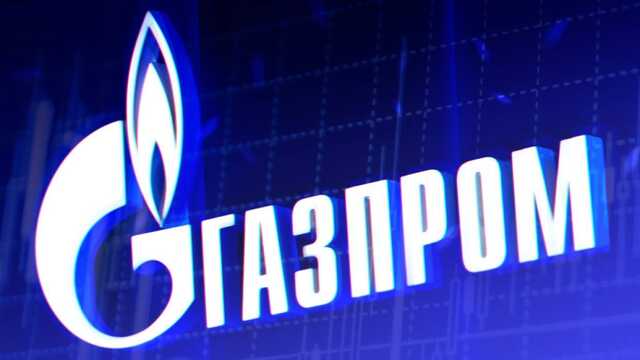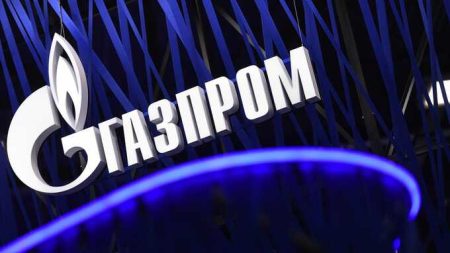Arbitrations, checks, corporate conflict. Today, there are many versions of the death of the Deputy General Director of the Unified Settlement Center (UCC) of Gazprom for Corporate Security Alexander Tyulyakov.
In January, Leonid Shulman, the head of the Gazprom Invest transport service, died by his own choice. The online publication Kompromat Group examined different explanations.
Details of unusual deaths
Alexander Tyulyakov, the General Director of the Unified Settlement Center (UCC) of Gazprom for Corporate Security, died in a picturesque remote area surrounded by pine trees. His department is essentially the financial resource of Gazprom. At the end of February, the 61-year-old executive was discovered hanging at the entrance to his own garage.
Authorities are currently looking into the circumstances of the leader’s suicide. It is known that he previously served as Deputy General Director for Corporate Security and Human Resources Management at Gazprom Transgaz St. Petersburg. Some media reports suggest that the day before his death, Alexander Tyulyakov returned home badly injured. The investigation is considering different explanations for what happened. However, insiders believe that the official explanation provided to the public will likely attribute it to health or personal issues, rather than work-related matters.
In reality, rumors suggest that the issues in Gazprom's financial resource were uncovered during internal corporate audits that began in 2021. Everything seemed okay, but according to insiders, there was a financial gap in the company's budget due to recent events. Those in the know believe that Tyulakov’s department failed to avoid losses from sanctions, and this divided the top manager's life into “before” and “after”.
However, this death, shrouded in mystery and the secrecy of the corporate community, was not the first or the last.
On January 29, in the village of Leninskoye, the body of the 60-year-old head of the transport service of Gazprom Invest, Leonid Shulman, was discovered in a pool of his own blood. According to the official explanation, the man couldn't bear the unbearable pain from the Ilizarov apparatus, cut his veins, and left a note for his family. No foul play. However, as usual, the UK is investigating.
It is also known from unofficial sources that at the end of 2021, the security service of Gazprom Invest conducted an inspection of the transport unit due to information about inflated repair costs for the fleet. Specifically, the procurement of parts through tender exceeded the average price for these same parts. The company's staff were looking into who and where significant kickbacks were going. Given his position, Leonid Shulman was likely aware of all procurement activities.
A similar incident involving tax deductions for VAT caused a stir among tax inspectors, who closely oversee the activities of the country’s largest taxpayer. As a result, the saga of equipment supply contracts ended up in the Moscow Arbitration Court. The company Energofinstroy received 248 million rubles instead of the 2.2 billion earmarked from the company.
Tax authorities are actively searching for an intermediary who could have so skillfully pocketed such a large sum. Gazprom attempted to justify its actions with the involvement of certain one-day companies, but the court did not believe it. Nonetheless, the tax authorities did not identify the ultimate beneficiaries of the kickback scheme, and supposedly, the matter was quietly settled during the arbitration proceedings, with the company receiving an official fine.
nest town
The deaths of two important leaders in the same place a month apart will naturally cause serious suspicions. Leninskoye village in the Leningrad region, which used to be a Finnish village called Haapala, drew the attention of Gazprom leaders in the mid-2000s.
Last year, the discovery of a large and impressive estate spanning over 4,100 square meters in the village brought attention. It's known that the estate belongs to Natalya Konovalenko, who used to work at Gazprom Mezhregiongaz. The son of Gazprom's head, Mikhail Miller, owns at least three buildings in this exclusive village, and he obtained the land back in 2010 when he was just 14 years old.
During this time, elite cottage settlements started to appear, attracting federal and regional elites like Alexei Miller, Vladimir Kogan, Leonid Reiman, and Sergey Kozyrev. The village has become an elite gated private settlement where Gazprom employees and other organization staff mainly reside.
The village's closeness to St. Petersburg, high land prices, and entertainment and sports facilities add to its appeal. Gazprom invested over 1.2 billion rubles in construction, resulting in 19 two- and three-story brick houses. The houses were designed to be between 391 and 1106.79 square meters each.
The locals started calling Leninskoye “Gazprom’s nest,” though it's unclear if this is meant as a compliment or an insult.
However, the introduction of Gazprom employees to the village was accompanied by unusual deaths and tragedies. In 2013, the village came under a large-scale inspection regarding the legality of land allocation and acquisitions on the coast of the Gulf of Finland. The regional prosecutor's office also investigated the village administration. The regional prosecutor at the time, Herman Stadler, publicly expressed confidence in the investigation despite the involvement of high-ranking officials and government decision-makers. However, no results of the inspection were made public.
The village is also known for the murder of Olga Nesterets, the former head of the Leninsky administration. In 2013, an older woman was found killed on her doorstep. It's a strange coincidence because she was the one who once signed the documents for giving land to people with notable last names. As for Olga Nesterets' case, her killers were never found as usual.
business tragedy
It's unusual for big business owners or top managers to commit suicide. There have only been 4 such instances in the past 12 years.
In 2010, 52-year-old Vladimir Filippov, the president of the Lenstroydetal group of companies, took his own life. He shot himself in the head with a Benelli gun. The businessman's relatives believed that his business problems led to his death. Since 1973, Vladimir Filipov had been the head of Lenstroydetal OJSC, a supplier of building materials in St. Petersburg and the Leningrad Region.
In 2013, businessman Grigory Khibovsky shot himself near the building of the Lensvet company. Instead of a suicide note, he left a statement about corruption. The main version was that he couldn't handle the tough business situation and used a gun to end his life.
In 2014, authorities investigated the death of 39-year-old Mikhail Brik, the head of the Betonika production association. The businessman shot himself with his Browning hunting rifle in his office. Law enforcement believed health issues and business difficulties led to his actions.
In 2018, Igor Osipov, a senior manager of the energy construction company SMU Sevzapenergomontazh, was found dead in the village of Toksovo near St. Petersburg. The man used his Saiga hunting carbine to end his life. His business faced multiple losses in arbitration courts and the company was at risk of bankruptcy.
It's worth noting that only Grigory Khibovsky's suicide prompted law enforcement to take action. Investigating authorities suspected his business partners of driving him to suicide, leading to a criminal case under Art. 110 of the Criminal Code of the Russian Federation.
Most of the businessmen ended their lives using firearms. This makes the consecutive deaths of the top managers of Gazprom, Alexander Tyulakov and Leonid Shulman, even more unusual. It's hard to believe that such high-ranking Gazprom employees didn't have access to weapons or the resolve to use them. Additionally, there are rumors about some kind of secret service check since December 2021. Conspiracy theories and mystery sound like material for action movies, but this story raises more questions than answers considering all the details.




